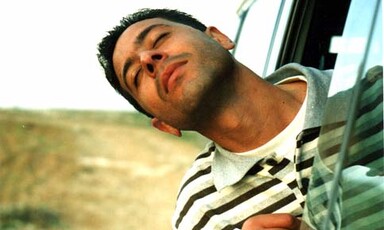
Review: "Route 181: Fragments of a Journey in Palestine-Israel"
13 June 2004
Capturing the fragments of a land shattered by politics, history, and colonialism, Route 181: Fragments of a Journey in Israel-Palestine, clocks in at about four and a half hours. The film’s length is epic-worthy, but it allows the filmmakers to present oral history from a wide variety of people who live along the 1947 partition line, while at the same time allow for minutes-long footage of the monotonous grey concrete wall that quietly runs along one of the region’s main roads. By portraying both the divide of the physical landscape and that of the humans that inhabit it, viewers receive a fuller understanding of this conflicted part of the world. Read more about Review: "Route 181: Fragments of a Journey in Palestine-Israel"


















